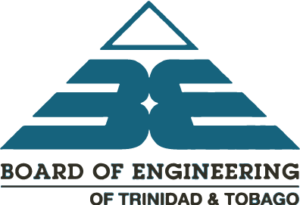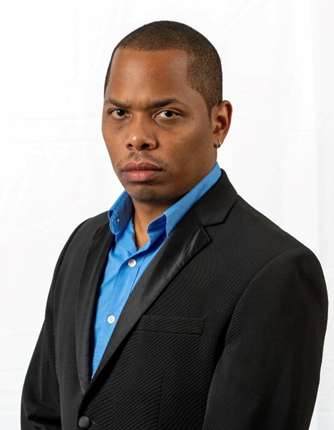Lendel Bethelmy, BSc, MSc, MAPETT
A Chat with Engineer Lendel Bethelmy, President of the Association of Professional Engineers of Trinidad and Tobago (APETT) and the youngest President in the history of the organization.
Engineer Lendel Bethelmy has emerged as a budding Structural Engineer and the youngest President in the history of the Association of Professional Engineers of Trinidad and Tobago. He has a clear vision for meeting current challenges and transforming the organization into the future with plans to inspire the next generation with youthful vision and leadership that would ensure succession planning of the organization.
The Board of Engineering of Trinidad and Tobago (BOETT) in its ongoing commitment to recognize and celebrate the achievements of young engineers and to inspire others to pursue excellence in the field, is excited to spotlight the career journeys and achievement of young engineering professionals such as Lendel. By so doing we aim to provide a platform for young engineers to share their professional milestones and significant achievements they’ve accomplished in their careers thus far. The BOETT wishes to extend best wishes and success to Engineer Bethelmy during his tenure as President of APETT
Q1. Congratulations on your election as the new President of the Association of Professional Engineers of Trinidad and Tobago! As the youngest engineer ever to lead this organization in its 66 years of existence, what inspired you to run for President of APETT at such a young age?
Thank you for the opportunity. If I were to be completely honest, taking on the role as President was not in my immediate professional trajectory. It was more a case of “opportunity meeting readiness”, if I were to crudely summarize my journey, I initially signed on to join APETT’s Executive Council as I felt that my professional goals aligned with the association’s goals, and I was happy to give back to the profession in any way that I can. Then one thing led to the next, I got elevated to the Chairmanship of the Civil Division, then President after about 8 years or so of service within the organisation. But I was mostly inspired by the belief and support that I received from my peers and my predecessors within the organization.
Q2. Can you share your journey in the engineering field and how it led you to this leadership role?
I started out my journey as a structural drafting technician. I then migrated to site and construction supervision. After about 5 years or so as a technician, I then went on to pursue an undergraduate degree in Civil Engineering, at the University of the West Indies (UWI). After receiving my undergraduate degree, one of my university professors offered me an opportunity to work with him and a company that he shared professional affiliations, Beston Consulting Limited.
From there, I was exposed to structural engineering, mentored by experienced industry professionals and allowed to develop professionally. I was even offered the opportunity to pursue a postgraduate earthquake engineering degree at one of the leading academic institutions in the world. After receiving my postgraduate degree, I returned to Beston Consulting Limited, where I continued my professional development as a structural engineer. I even began to do part-time lecturing at UWI, in the Department of Civil Engineering.
During my journey as an aspiring structural engineer, I also began my involvement with APETT where I initially spearheaded various mentorship initiatives and technical seminars as a supporting member at the Division’s level. I was then elevated to Division Chair and the rest is history.
Q3. Being the youngest President of APETT, do you see this as an opportunity or a challenge? How do you plan to navigate it?
It can be a bit of an opportunity and a challenge at times. However, I tend to approach life from an optimistic perspective and as such, I always seek out opportunities even in the face of perceivable challenges. Most times, it can be intimidating to a younger engineer to take on leadership roles within the Association or to even get involved. However, I hope that through my tenure, that more younger persons are inspired as it is necessary for the survival and succession planning of the association.
Q4. What specific goals or initiatives do you hope to prioritize during your tenure as President?
As I assess and reflect where APETT was, where we are now and where we need to go; even when I consider the current administrative structure of APETT, the need for an organizational growth plan is important to our survival – one that seeks to outline our objectives and goals over the next 5 years or so. Some other initiatives that I hope to prioritise during my tenure would include:
- Enhancing the collaboration between APETT and BOETT to better serve industry needs
- Pursue a BOETT guidance document to regulate and control the use of the Engineering seal or stamp across disciplines.
- Enhance social media presence and interface with the general public
- Establishing APETT operation guideline and policy documents
- Re-establishing of Continuous Professional Development (CPD) framework with consideration to make it mandatory
- Enhanced mentorship initiatives at both tertiary and secondary level
- Exploring income diversification options and alternate revenue streams
Q5. Can you share your vision for the future of the Association and how you intend to lead it in achieving that vision?
My vision for APETT is for the organization to become the advocative, mentorship and networking body that it was originally envisioned to become. I plan to achieve this through the development of strategic and organisational growth plans, as well as proper and streamlined succession and implementation planning. This can only be achieved through unification and collaborative efforts within the association.
Q6. What strategies do you have in mind to enhance the professional development opportunities available to engineers through the activities of the Association’s various Divisions?
This can be achieved through the re-establishing of CPD framework. Various technical and managerial/leadership seminars and/or workshops can also be rolled out to support this initiative. Such initiatives are best rolled out through the Divisions as training/content is usually discipline specific.
Q7. How will you work to ensure that the Association remains relevant and responsive to the evolving needs of its members and the engineering profession as a whole?
This can be achieved through regular and open communication strategies such as social media and other media platforms. Also, periodic questionnaires and/or networking events have proven to be very effective in receiving feedback on the needs of both the engineering profession and its members.
Q8. How do you plan to engage young engineers and ensure greater participation in APETT?
I plan to lead by example, with the hope of encouraging or inspiring the younger ones to “follow suit” and participate. Young engineers have also often expressed an interest in more technical seminars, relatable social media interactions and social/networking events.
Q9. What message would you like to convey to the members of the Association as you embark on your term as President?
I am truly honoured to have been elected as the President of APETT. However, I want to emphasize that this position and journey is not about individual achievement, but about how we, as a team, can move our organization forward. I look forward to collaborating with everyone as we work towards making our shared vision a reality.
Q10. What are some of the biggest challenges facing engineers in Trinidad and Tobago today?
Most of the major challenges that come to mind are tied to the current state of the economy and the associated inability to sustain viable engineering practices at the organizational level. There simply isn’t enough jobs, career or mentorship opportunities to provide to our university graduates. There is also the issue of poor legislative support as it relates to the establishment of local codes or even the enforcement of adopted international codes and standards.
Q11. What motivates you as a leader, and what advice do you have for young engineers aspiring to leadership positions?
I am personally motivated by several factors including a desire to contribute to something larger than myself and to positively impact others, create positive change, solve problems/improve situations, the opportunity to build strong relationships, and foster a collaborative environment and for personal growth as I am always actively seeking ways to improve. For young engineers aspiring to leadership positions, I would advise to follow their growth path, get involved and associate yourself as you need to. You need to associate yourself with something or an objective that is a lot larger than yourself. The absence of vision would negatively impact direction as a leader.
Q12. What legacy would you like to leave at the end of your term as APETT President?
The legacy that I would like to leave is the importance of high integrity, strong morals and unwavering commitment to your desired objectives. Also, while youth may be considered disadvantageous in more mature or developed spheres, it is not necessarily tied to your ability to make a positive impact.


